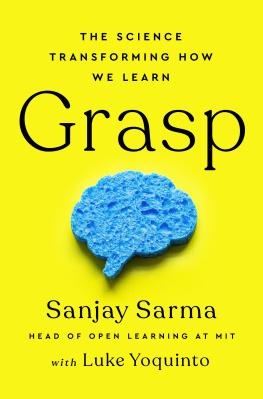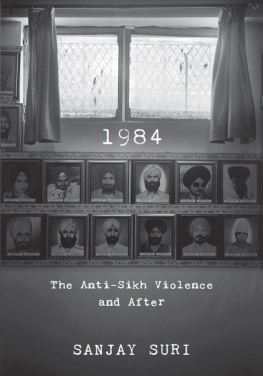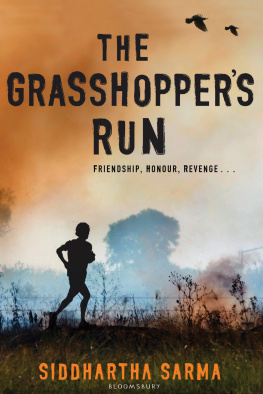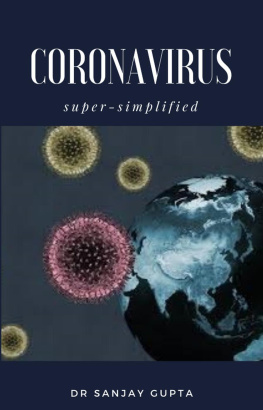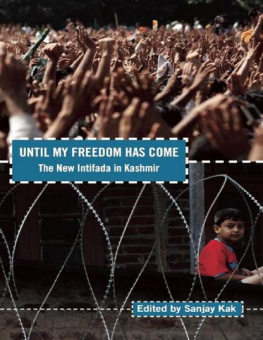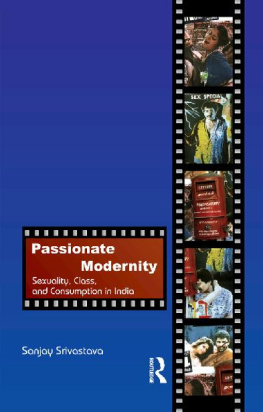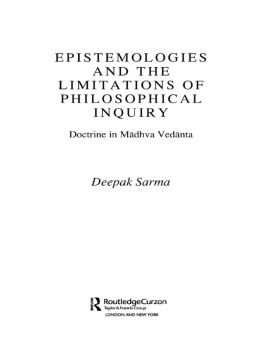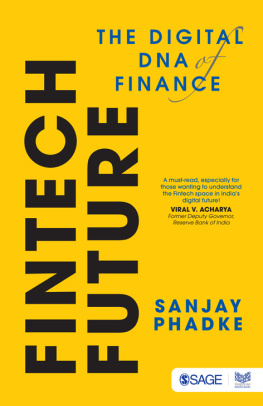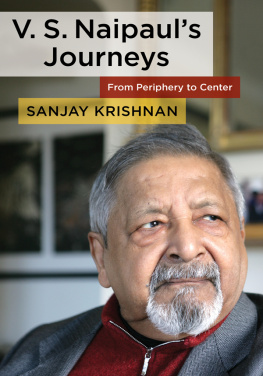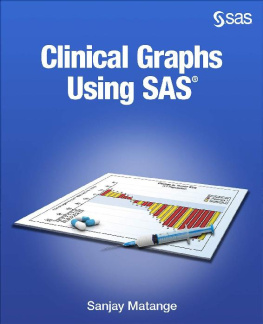Sanjay Sarma - Grasp: The Science Transforming How We Learn
Here you can read online Sanjay Sarma - Grasp: The Science Transforming How We Learn full text of the book (entire story) in english for free. Download pdf and epub, get meaning, cover and reviews about this ebook. year: 2020, publisher: Knopf Doubleday Publishing Group, genre: Religion. Description of the work, (preface) as well as reviews are available. Best literature library LitArk.com created for fans of good reading and offers a wide selection of genres:
Romance novel
Science fiction
Adventure
Detective
Science
History
Home and family
Prose
Art
Politics
Computer
Non-fiction
Religion
Business
Children
Humor
Choose a favorite category and find really read worthwhile books. Enjoy immersion in the world of imagination, feel the emotions of the characters or learn something new for yourself, make an fascinating discovery.
- Book:Grasp: The Science Transforming How We Learn
- Author:
- Publisher:Knopf Doubleday Publishing Group
- Genre:
- Year:2020
- Rating:3 / 5
- Favourites:Add to favourites
- Your mark:
- 60
- 1
- 2
- 3
- 4
- 5
Grasp: The Science Transforming How We Learn: summary, description and annotation
We offer to read an annotation, description, summary or preface (depends on what the author of the book "Grasp: The Science Transforming How We Learn" wrote himself). If you haven't found the necessary information about the book — write in the comments, we will try to find it.
Grasp: The Science Transforming How We Learn — read online for free the complete book (whole text) full work
Below is the text of the book, divided by pages. System saving the place of the last page read, allows you to conveniently read the book "Grasp: The Science Transforming How We Learn" online for free, without having to search again every time where you left off. Put a bookmark, and you can go to the page where you finished reading at any time.
Font size:
Interval:
Bookmark:
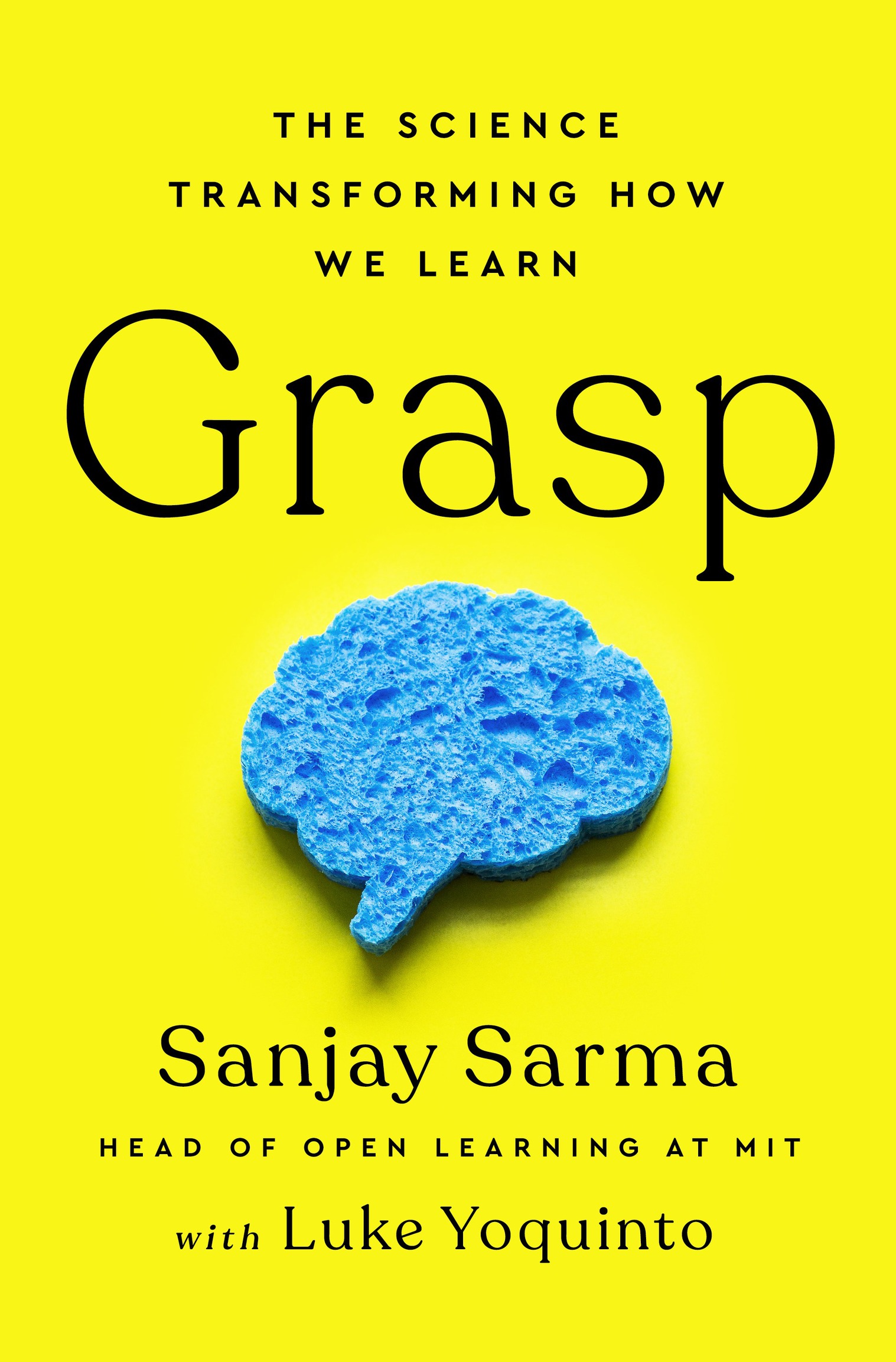
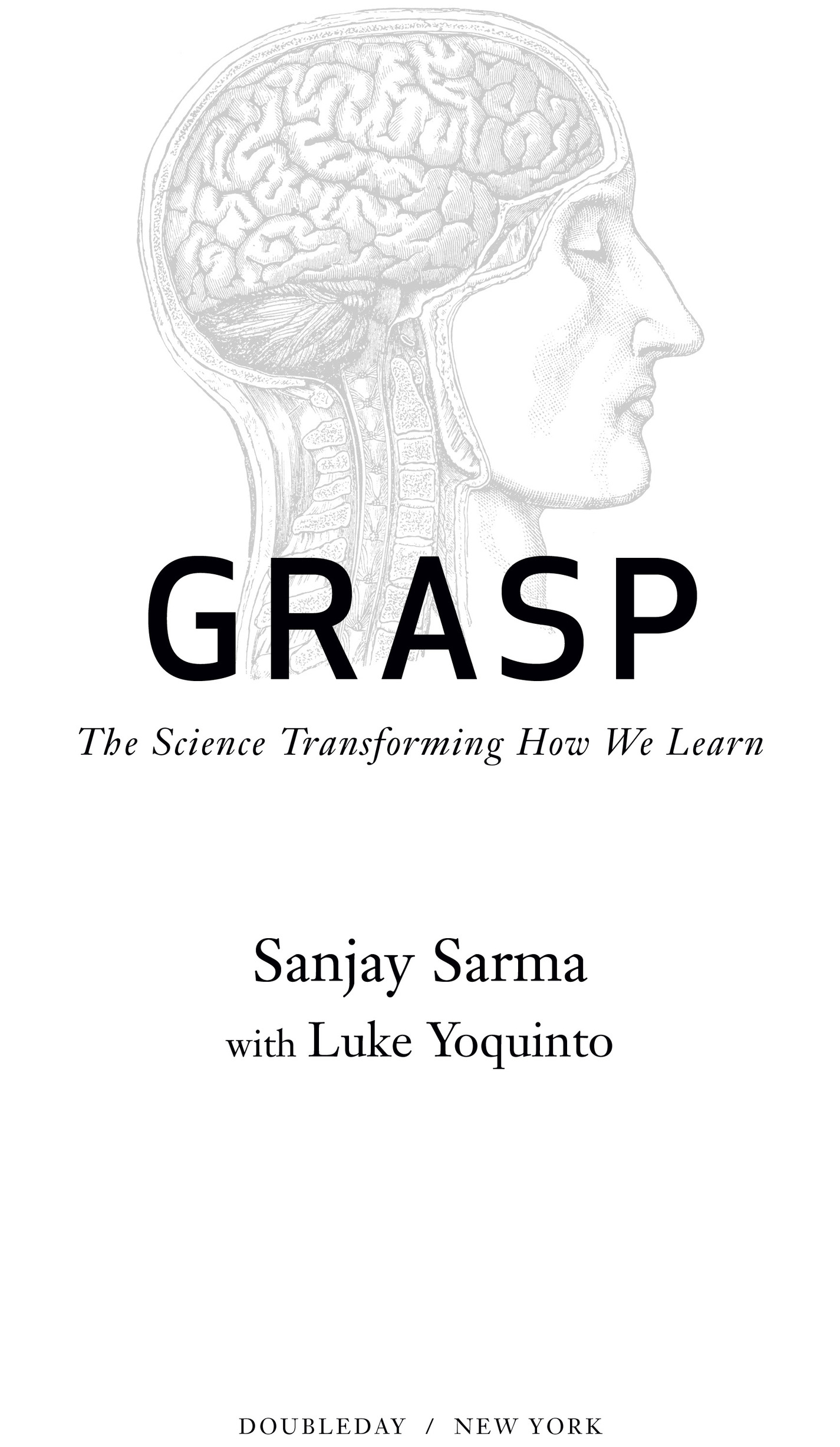
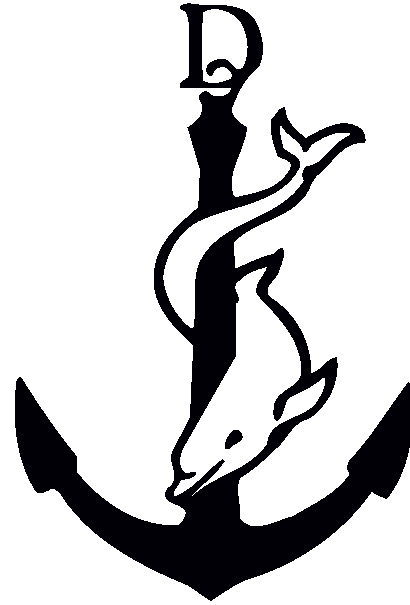
Copyright 2020 by Massachusetts Institute of Technology
All rights reserved. Published in the United States by Doubleday, a division of Penguin Random House LLC, New York, and distributed in Canada by Penguin Random House Canada Limited, Toronto.
www.doubleday.com
DOUBLEDAY and the portrayal of an anchor with a dolphin are registered trademarks of Penguin Random House LLC.
Cover design and photography by Pete Garceau
Library of Congress Cataloging-in-Publication Data
Names: Sarma, Sanjay E., [date] author. | Yoquinto, Luke, author.
Title: Grasp : the science transforming how we learn / Sanjay Sarma and Luke Yoquinto.
Description: First edition. | New York : Doubleday, [2020] | Includes bibliographical references.
Identifiers: LCCN 2019054620 | ISBN 9780385541824 (hardcover) | ISBN 9780385541831 (ebook) | ISBN 9780385546683 (open market)
Subjects: LCSH: Learning, Psychology of. | LearningResearch.
Classification: LCC LB1060 .S26 2020 | DDC 370.15/23dc23
LC record available at https://lccn.loc.gov/2019054620
Ebook ISBN9780385541831
ep_prh_5.5.0_c0_r0
SS: To Gitanjali and Tara
LY: To Kelsey and Hope
In memory of Woodie Flowers
Learning is an adventureand as anyone whos survived an adventure will tell you, thats not always a good thing. It can be a long, rewarding process that changes the way you experience the world and reveals capabilities you never knew you had. But in the retelling adventures are extolled only by the victors. For every adventurer whos slain an educational dragon, there may be dozens lying in caves and ditches nearby, smoldering in their armor, ruing the day they made their attempt.
My closest scrape with outrageous educational misfortune came at the Indian Institute of Technology, Kanpur. The moment stands out in my memory with uncanny clarity, as though it had been filmed at double the standard frame rate, as in Peter Jacksons somehow-too-vivid Hobbit movies. It happened my final year at university.
Actually, to be technical, it was the summer after my final year. Although I had entered university firing on all cylinders, at some point my straight As gave way to curvier letters, and finally, just before what should have been my graduation, I managed to flunk Controls, a course required for my engineering degree.
That meant summer school: one chance at redemption. In most of India, summer means the monsoon season. In Kanpur, its wetter than it is hotand it is as hot as anywhere Ive ever lived. The dormitories werent air-conditioned, but the rooms did have French doors that opened onto a small terrace, and so, like every other sucker lucky enough to be taking remedial summer courses, I pushed my bed close to the French doors, so that at least my upper half could enjoy the occasional breeze. My worldly goodsmy trunk of clothing, books, a stash of sweets Id brought from homewent at my feet, at the other end of the room.
One morning, I woke up at eight or so, bleary eyed. Something was amiss.
Or rather, something was looking at me. Something with an impressive set of teeth.
I dont know if youve ever experienced the rapid transition from drowsiness to abject terror, but I dont recommend it. Every part of my body froze except my eyeballs, which swiveled on their bearings to take in my visitor. Staring back, fangs bared, was a rhesus macaque.
Too late, I realized my error: I had situated myself between my stash of sweets and any passing hungry simians.
Monkeys, in my opinion, are cute only on the other side of a television screen. They can be mischievous in all the worst ways, even violent, and they sometimes carry rabies. We stayed like that, face-to-face, for what felt like minutes. I pictured my obituary: Once-Promising Student Mauled at Summer School.
Five years earlier, in high school, no one who knew me would have predicted such an ignominious fate. Together with about 70,000 of my peersthe comparable number today is on the order of a millionI had sat for the Indian Institutes of Technologys entrance exam. It was, and remains, perhaps the most competitive exam in the world. With some variation by year, only the top 2 percent of test takers are accepted to any of IITs campuses, which means for every fifty would-be dragon slayers, only one prevails. When my cohorts scores came in, I learned that I had placed among the top five hundred students in the country. The news came as a major relief. Though I had won the neonatal lottery in the sense that I had been born to educated parents who prized learning and independent thought, we were far from wealthy, and they had made it clear to me that if I were ever going to make something of myself, academic excellence would be non-negotiable. After I saw my name on that board, it seemed my adventure was off to a promising start.
But at some point at university, the going became a slog. It became difficult to figure out how and why the abstract coursework I was supposed to be learning mattered in the larger scheme of things. It wasnt my professors fault; I was being taught by some of the better professors in India, and plenty of other students were doing just fine. And it wasnt that I didnt want to care about the material. I wished desperately, in fact, for the stuff I was being taught to fit into my head as effortlessly as it had in my childhood.
But instead, for the first time in my life, learning had become difficult. In a way, I almost envied the monkey slavering at the end of my bed. All he had to do was wander along the row of dormitory windows and take whatever food was on offer. To him, my university was a buffet, filled with treats just waiting to be discovered. It should have been that way for me as well. I could see some of my friends partaking in the spread of knowledge, but I couldnt force myself to eat. In a very real sense, the monkey was better adapted to my university than I was.
Today, more than thirty years later, Im happy to report I survived the most dangerous part of my educational adventure. The macaque at the end of my bed scampered away, permitting me to spend the rest of the summer forcing down the curriculum of my Controls course (and reading J. R. R. Tolkiens entire Lord of the Rings cycle). If I hadnt been given that second crack at that course, however, or if something else should have come between me and my studies that summer, I shudder to think about the later educational journeys I would have missed out on.
Instead, today I find myself in a unique position: not just engaged in my own lifelong pursuit of knowledge, but also the lead guide for many others. I head the Open Learning effort at the Massachusetts Institute of Technology, where its my job to fling open the doors of the MIT educational experience and extend aspects of it to as many people as might conceivably benefit.
My quest is hardly unprecedented. Many others across time and space have made similarly ambitious attempts: geniuses, visionaries, disciplinarians, anti-disciplinarians, administrators, philosophers, gurus,
Font size:
Interval:
Bookmark:
Similar books «Grasp: The Science Transforming How We Learn»
Look at similar books to Grasp: The Science Transforming How We Learn. We have selected literature similar in name and meaning in the hope of providing readers with more options to find new, interesting, not yet read works.
Discussion, reviews of the book Grasp: The Science Transforming How We Learn and just readers' own opinions. Leave your comments, write what you think about the work, its meaning or the main characters. Specify what exactly you liked and what you didn't like, and why you think so.

